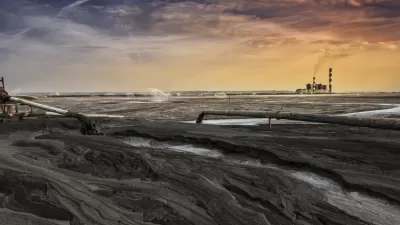In September, 2011 the above title read two million. Figures from both years are based on reports from the World Health Organization, a United Nations agency. Is air quality getting worse, or are more deaths being attributed to air pollution?
"The staggering number — one in eight of all deaths, globally" in 2012 makes air pollution "the single largest environmental health risk in the world today", writes Lucy Westcott (who also writes for The Wire). "The World Health Organization (WHO) says that improved technology used to measure the effects of human exposure to pollutants has led to better estimates of the number of deaths," adds Wescott.
WHO's press release further explains the near-quadrupling over the figure we reported in 2011 that was restricted to data from "1,100 cities across 91 countries, including capital cities and cities with more than 100,00 residents based on measurements from 2003 to 2010."
The new estimates are not only based on more knowledge about the diseases caused by air pollution, but also upon better assessment of human exposure to air pollutants through the use of improved measurements and technology. This has enabled scientists to make a more detailed analysis of health risks from a wider demographic spread that now includes rural as well as urban areas."
Reports of horrendous air quality are reported not only in Beijing and other Chinese cities; Tehran, Delhi and other Asian cities, but even Paris which enacted a partial driving ban on March 17.
However, deadly air pollution is not restricted to the smog and particulate pollution that envelop cities. WHO notes that 61% of air pollution-caused mortality (4.3 million deaths) in 2012 was attributed to "indoor air pollution in households that cooked over coal, wood and biomass stoves," writes Wescott.
The effects of air pollution transcend public health and mortality. Bloomberg News reports that "(a)ir pollution led to genetic changes that may have sapped learning skills in children whose mothers were exposed to a Chinese coal-fired power plant before it was shuttered a decade ago."
FULL STORY: Air Pollution Now Linked to 1 out of Every 8 Deaths in the World

Planetizen Federal Action Tracker
A weekly monitor of how Trump’s orders and actions are impacting planners and planning in America.

Maui's Vacation Rental Debate Turns Ugly
Verbal attacks, misinformation campaigns and fistfights plague a high-stakes debate to convert thousands of vacation rentals into long-term housing.

Restaurant Patios Were a Pandemic Win — Why Were They so Hard to Keep?
Social distancing requirements and changes in travel patterns prompted cities to pilot new uses for street and sidewalk space. Then it got complicated.

In California Battle of Housing vs. Environment, Housing Just Won
A new state law significantly limits the power of CEQA, an environmental review law that served as a powerful tool for blocking new development.

Boulder Eliminates Parking Minimums Citywide
Officials estimate the cost of building a single underground parking space at up to $100,000.

Orange County, Florida Adopts Largest US “Sprawl Repair” Code
The ‘Orange Code’ seeks to rectify decades of sprawl-inducing, car-oriented development.
Urban Design for Planners 1: Software Tools
This six-course series explores essential urban design concepts using open source software and equips planners with the tools they need to participate fully in the urban design process.
Planning for Universal Design
Learn the tools for implementing Universal Design in planning regulations.
Heyer Gruel & Associates PA
JM Goldson LLC
Custer County Colorado
City of Camden Redevelopment Agency
City of Astoria
Transportation Research & Education Center (TREC) at Portland State University
Jefferson Parish Government
Camden Redevelopment Agency
City of Claremont




























